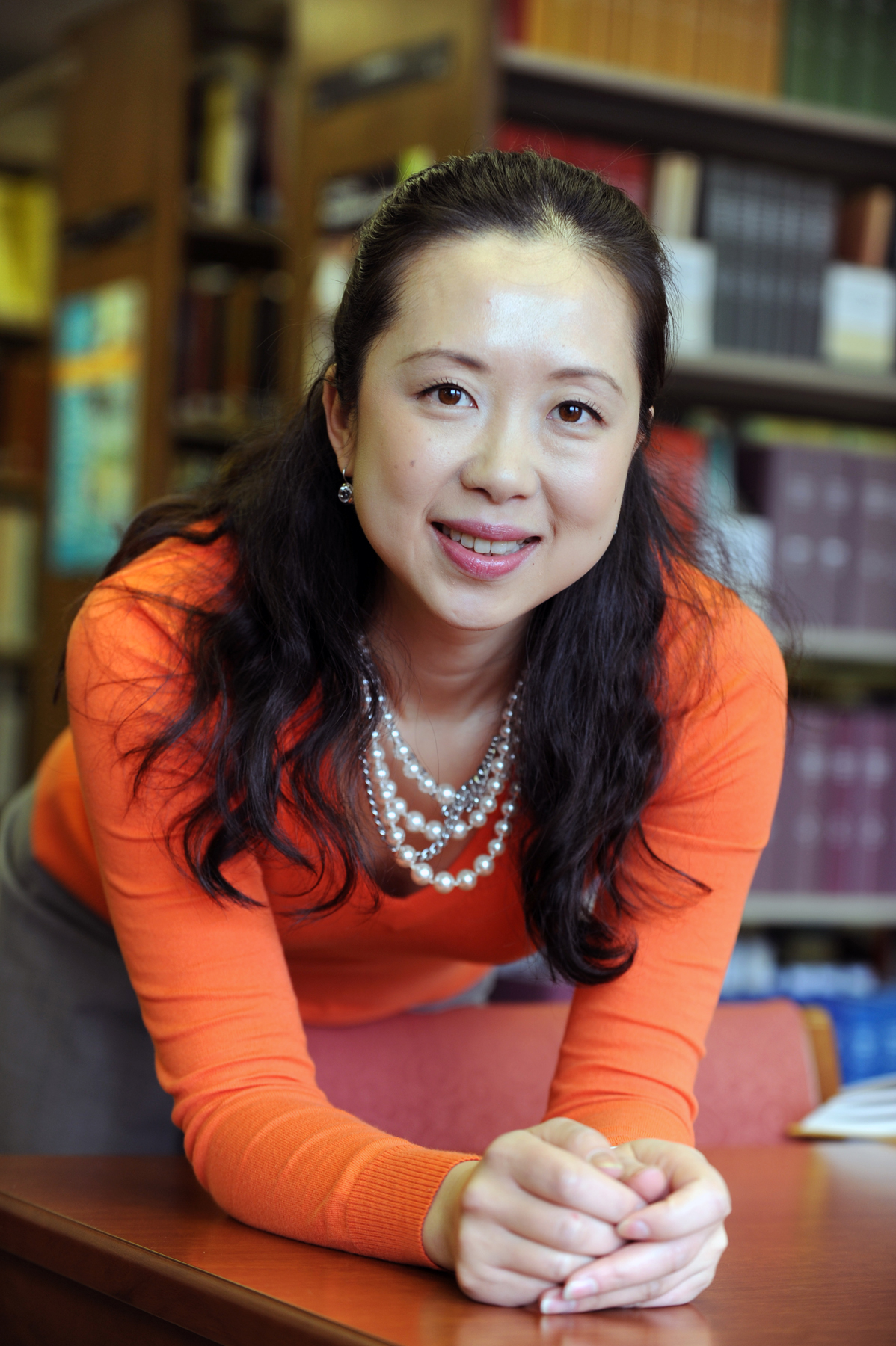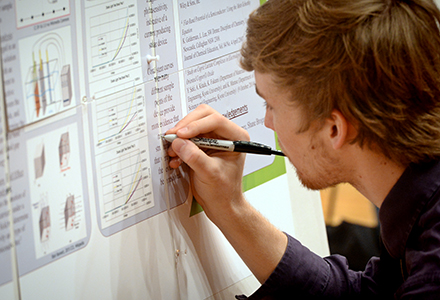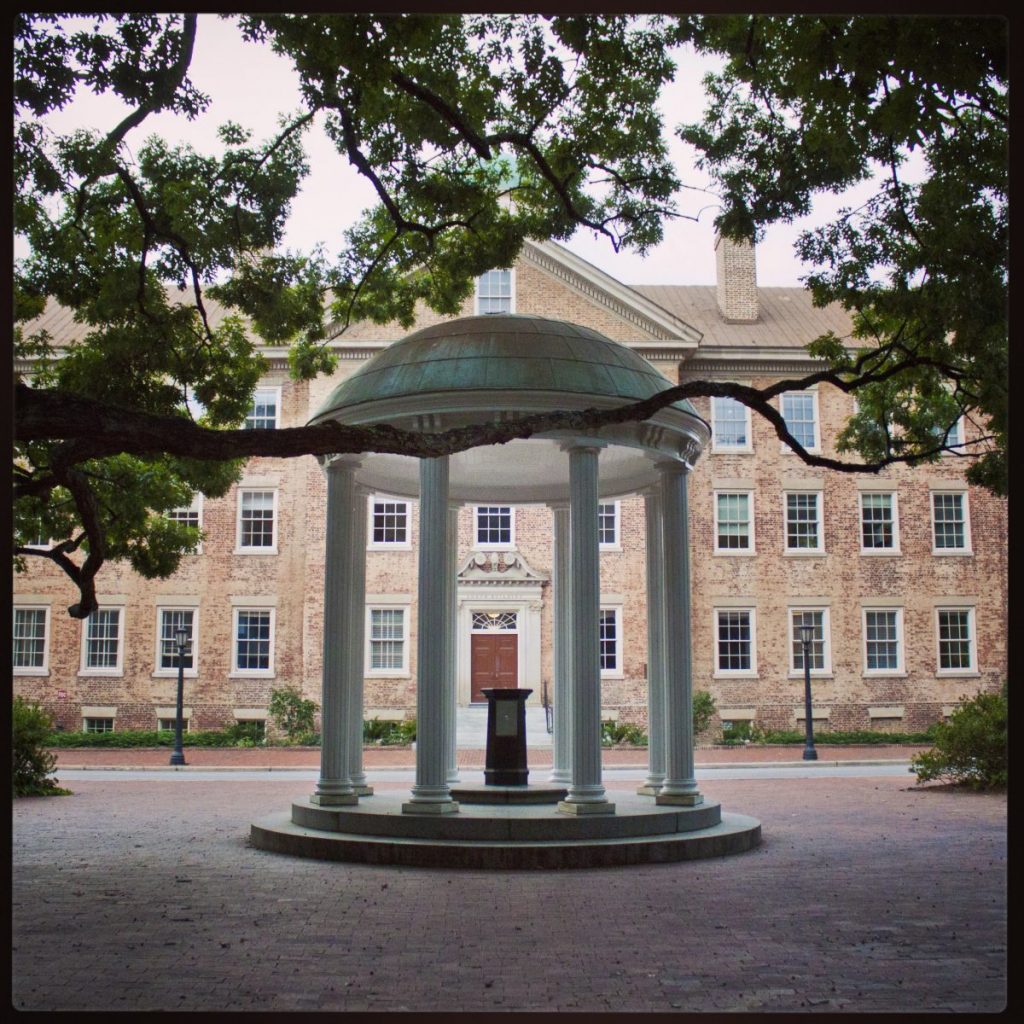
The arthritis and chronic back pain are so intense that the patient can barely get through the day. The patient’s blood work reveals that his body is in a state of chronic inflammation, a sign that his immune system is working too hard. Doctors prescribe medication, which helps a little, but it won’t address one contributing factor that UNC sociologist Yang Yang says doctors aren’t trained to consider.
Over the past three decades, researchers have shown that people with fewer connections to family, friends, and social groups have a greater risk of being in poor health than do people with many social connections.
Yang is determined to find out why. Her latest research shows that social isolation is strongly linked to chronic inflammation, which has been implicated in several health problems, including digestive ailments, chronic pain, heart disease, and some forms of cancer. Yang’s analysis has revealed such a profound association that she thinks that social isolation doesn’t just accompany inflammation—it might actually contribute to inflammation.
The finding is part of a new kind of research that tries to bridge the gap between the social and the biological; it’s a field that Yang has been preparing to explore for much of her life.
Yang, born in southwestern China, got her first taste of academic research while enrolled in an elite humanities program at the University of Beijing. “I was a writer, curious about the truth,” she says. Though she knew that artists contribute to society and our understanding of it, Yang grew dissatisfied. She wanted a more scientific approach, so she switched to sociology.
“In social science, you have rigorously developed tools to put conventional wisdom to the test,” she says. As a young scholar, many questions caught her fancy. Why do women live longer than men? Why are some subpopulations of people healthier than others? Why do people who have fewer connections with friends and family suffer from higher rates of illness and die earlier?
After earning a doctorate from Duke, Yang joined the faculty at the University of Chicago, where in 2008 she made national news when she found that baby boomers, as a whole, reported being less happy than every other age group. “I almost fell off my chair when I saw my data,” she says. “I thought this can’t be true.”
Baby boomers, by and large, were the product of a postwar boom in education, opportunities, and the economy in general. Why would they be less happy than Yang’s own Generation X? She analyzed her data several more times and in different ways. But her finding was clear and lent credence to the long-held but unproven theory that people born during population booms face more competition for spots at good colleges and jobs with good employers. Such competition can lead to dissatisfaction.
But Yang didn’t pursue that theory, even though the study of happiness had become a hot field. Instead she wondered: if social forces, such as when someone is born, can influence a person’s happiness, could those social forces affect a person’s health?
For that, she’d have to study biomarkers that predict a person’s health, such as cholesterol, blood pressure, and immune function. And for that, she’d have to leave the friendly confines of sociology and population science to delve into a world of factors that medical researchers study. Yang came to Chapel Hill because of the intellectual environment and the reputations of UNC’s Lineberger Comprehensive Cancer Center, the Carolina Population Center, and the social sciences departments in general, where researchers are encouraged to cross disciplines, create new niches of research, and collaborate with others outside their areas of expertise.
“We know that without social connections, distress emerges and health fails,” Yang says. But why? “Answering this is my calling: to bridge these two seemingly disparate bodies of knowledge—sociology and medicine—and fill the gaps to bring them together.”
For her current research, Yang is using the National Health and Nutrition Examination Survey conducted every two years by the Centers for Disease Control and Prevention. The survey provides Yang with data such as each participant’s economic status, age, gender, height, weight, and blood pressure .
Because the survey requires participants to give blood samples, the database also includes things like levels of cholesterol, triglycerides, blood sugar, and three important biomarkers: C-reactive proteins, serum albumin, and fibrinogen. Elevated levels of those three biomarkers are signs of a dysfunctional immune system, which leads to chronic inflammation and an increased risk of health problems.
The national survey also helps sociologists determine which participants are socially connected. For that, there are four questions (paraphrased): Do you belong to a religious group? Are you married (or living with someone as if married)? Do you belong to a social organization and/or volunteer? And do you have frequent contact with friends, family, or other relatives? If you say yes to all four, then you’re deemed to be fully socially integrated. If you answer yes to none or one, then you are deemed socially isolated.
According to Yang, most people fall in the middle; they answer yes to two or three of the questions. About 25 percent fall into the fully integrated category. And about 17 percent are considered socially isolated.
When Yang analyzed the biomarker data, she found that—independent of other factors such as age, economic status, and education—people who are socially isolated are much more likely to suffer from chronic inflammation.
“This could be one reason why social isolation leads to higher mortality,” she says. “It induces a heightened inflammatory response. And inflammation is a crucial predictor of mortality; the more you have, the more deleterious it is to your health.”
Yang’s study, which took about a year to complete, also revealed that the link between social isolation and inflammation is strongest in older men, which could be one of several reasons why women generally live longer than men.
Though it’s impossible to use the national database to prove that social isolation causes inflammation, Yang is the first to use a national cross section of U.S. citizens to show that there’s a connection. “At this point, we’ve found a strong association that seems to partly explain the link between social isolation and death,” she says. “But we’re just scratching the surface.”
Chronic inflammation is just one mortality predictor. There are several others, such as the various risk factors for cardiovascular disease and diabetes. When present in one person, those multiple risk factors are known as metabolic syndrome. Using the CDC database, Yang can study how metabolic syndrome is associated with social isolation, economic status, or any other social force.
“There’s a wealth of data to tap into, and I can’t stop thinking about it,” Yang says. “I have plenty of work to do.”
[Story by Mark Derewicz, Endeavors magazine ]
Yang Yang is an associate professor of sociology in the College of Arts and Sciences, a member of the Lineberger Comprehensive Cancer Center, and a faculty fellow at the Carolina Population Center. In 2012, she was awarded a Phillip and Ruth Hettleman Prize for Artistic and Scholarly Achievement by Young Faculty.
Collaborators on her most recent study were Mike Kozloski, a doctoral candidate at the University of Chicago, and Ting Li, a postdoctoral scholar at UNC.




